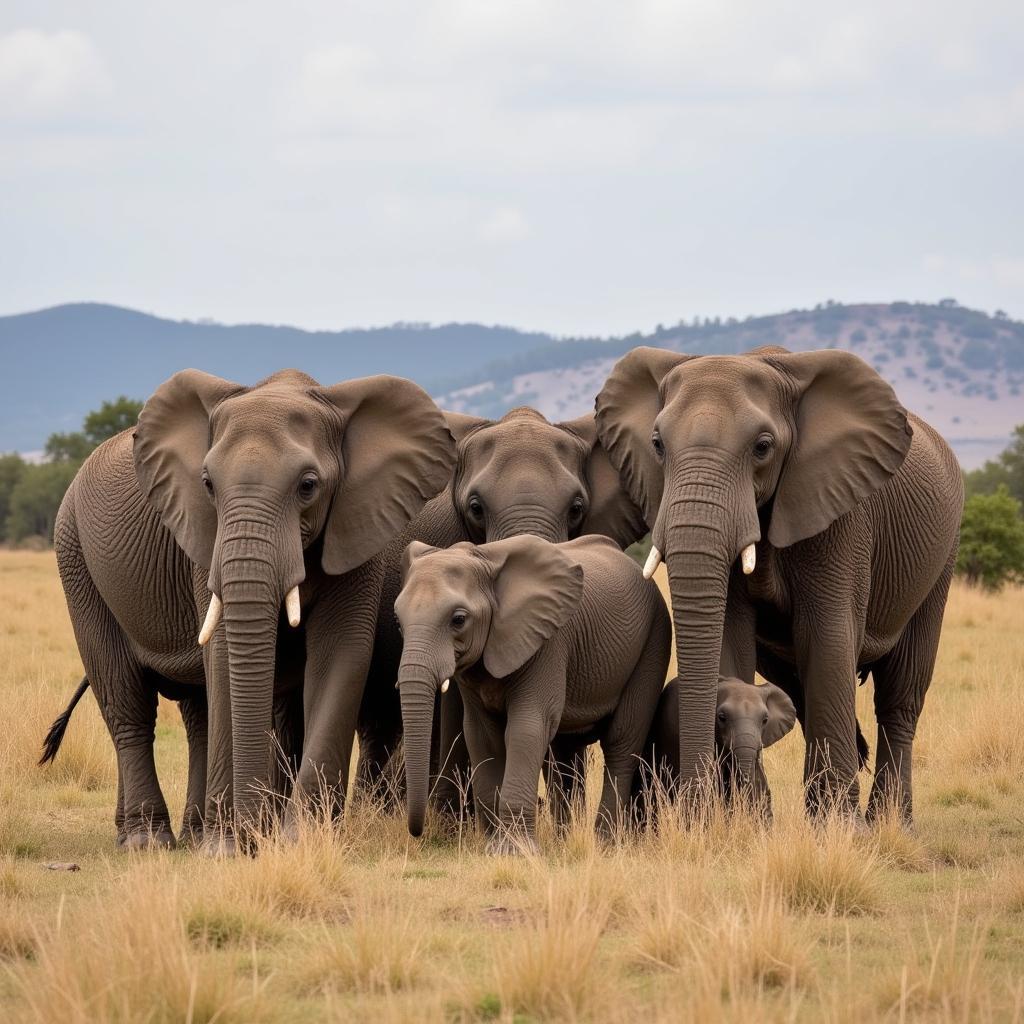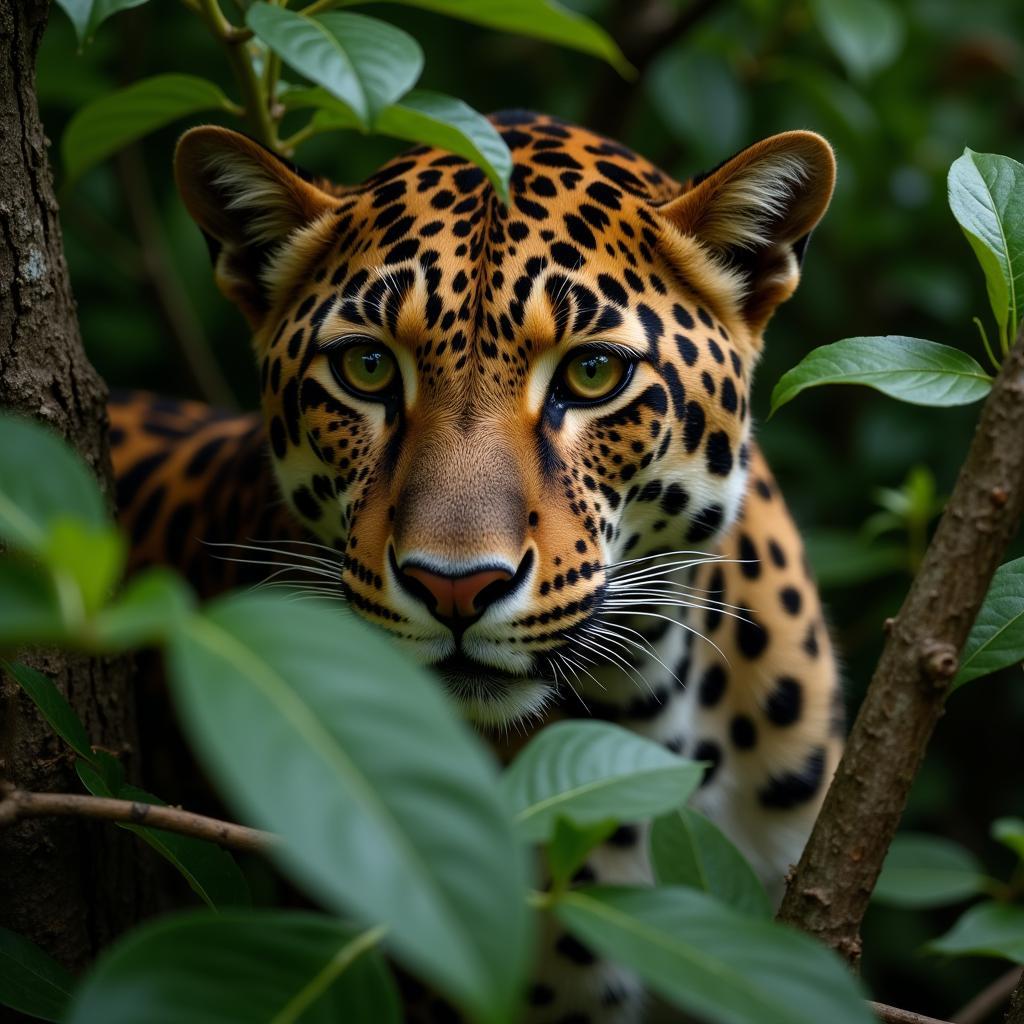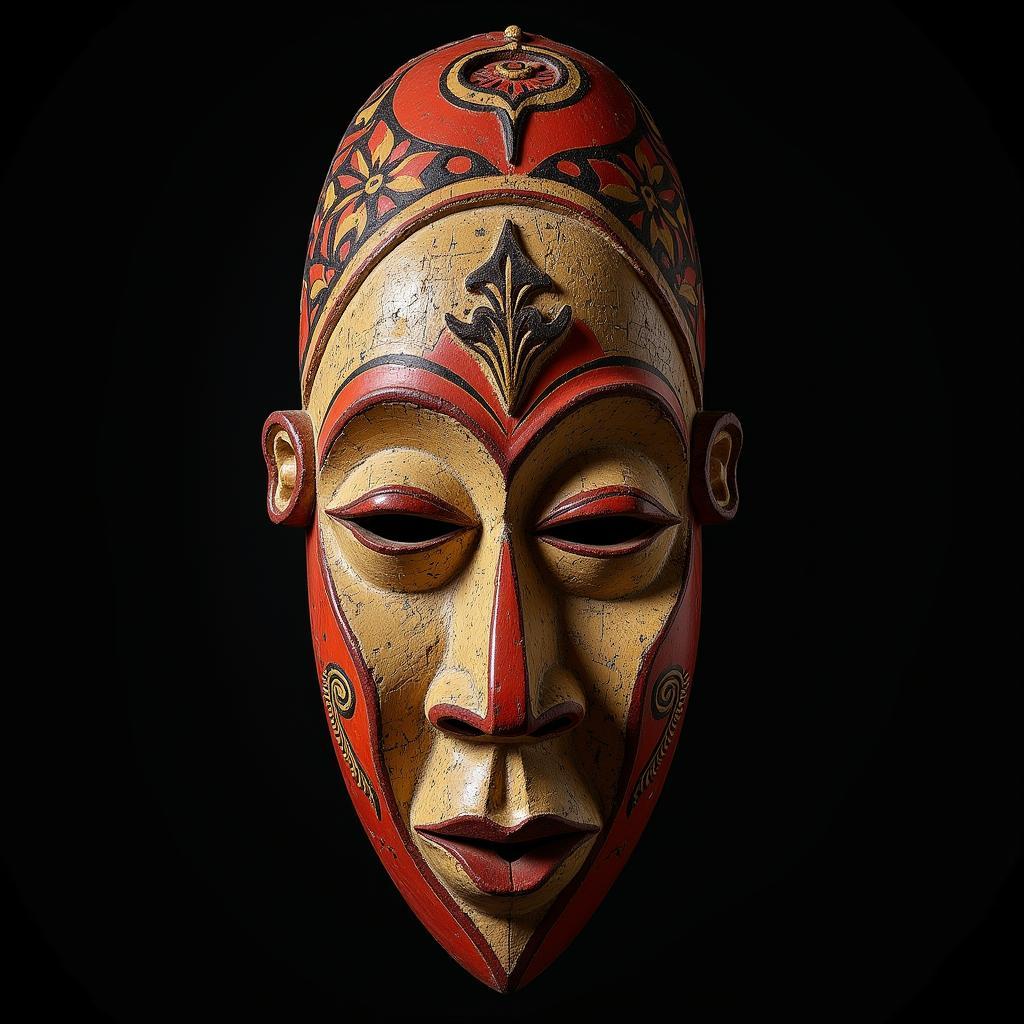African Elephant Weight at Birth: A Giant’s First Steps
African elephants, the largest land animals on Earth, possess a certain majesty that captivates the imagination. From their towering size to their intricate social structures, everything about them speaks of power and grace. But have you ever wondered about the very beginning of their journey? An African elephant’s weight at birth is a testament to the incredible growth potential these creatures possess.
A Tiny Giant Emerges: The First Hours
A newborn African elephant, affectionately called a calf, enters the world weighing a hefty 200-265 pounds. To put that in perspective, that’s about the size of a large adult human! Standing at approximately 3 feet tall, these little giants are far from miniature.
The first few hours of a calf’s life are critical. They must quickly learn to stand, walk, and most importantly, nurse from their mother. Colostrum, the first milk produced, is vital as it provides the calf with essential antibodies to ward off disease.
A Legacy of Size: Growth and Development
Over the next two years, the calf will remain dependent on its mother’s milk, supplementing it with vegetation as it grows. This period is crucial for development, and the calf will gain an average of 2-3 pounds per day! Imagine that growth spurt!
By the age of six months, the calf will start to experiment with using its trunk, a marvel of nature that serves as both a nose and an extra limb. It will learn to pick up objects, trumpet greetings, and eventually, even use it to drink water.
Reaching for the Sky: African Elephant Size Comparison
It’s fascinating to note the african elephant size comparison to other animals and even to humans. An adult African elephant can reach a shoulder height of up to 13 feet and weigh up to 14,000 pounds! To understand the enormity of that, consider this: a newborn calf is roughly the weight of an adult male lion’s prey, yet an adult elephant dwarfs even the largest land predators.
Factors Affecting Birth Weight: A Closer Look
Just like with humans, several factors can influence an African elephant’s weight at birth. These include:
- Mother’s age and health: Older, healthier mothers tend to give birth to larger calves.
- Environmental conditions: Abundant food and water sources contribute to healthier pregnancies and larger offspring.
- Genetics: Just as some humans are genetically predisposed to being taller, certain elephant lineages may naturally give birth to heavier calves.
 African Elephant Family Group
African Elephant Family Group
A Future Uncertain: Conservation Concerns
While the birth of an African elephant is always a cause for celebration, it’s important to acknowledge the threats these magnificent creatures face. Habitat loss, human-wildlife conflict, and poaching have all taken a toll on their numbers.
“The future of African elephants rests in our hands,” says Dr. Anika Motisho, a leading conservationist with the African Wildlife Foundation. “We must work together to protect their habitats and ensure that these gentle giants continue to grace our planet for generations to come.”
By understanding the intricacies of their lives, even something as seemingly simple as an African elephant’s weight at birth, we gain a deeper appreciation for their vulnerability and the urgent need for their conservation.
FAQs About African Elephant Calves:
1. How long does an African elephant pregnancy last?
African elephants have the longest gestation period of any mammal, lasting approximately 22 months.
2. How many calves do African elephants usually have at once?
African elephants typically give birth to a single calf at a time. Twins are extremely rare.
3. What is the african elephant breeding age?
Female African elephants typically reach sexual maturity between the ages of 10 and 12 years old. However, they may not have their first calf until several years later.
4. How long do African elephant calves stay with their mothers?
African elephant calves are dependent on their mothers for at least the first two years of life, but they often stay with the herd for much longer, learning valuable social skills and survival techniques.
5. What are the main threats to African elephant calves?
The biggest threats to African elephant calves are habitat loss, poaching, and drought.
Need More Information?
Explore more fascinating facts about African elephants:
- Discover more about african bush elephant reproduction
- Learn more about african elephant baby elephant baby
We Are Here to Help
For further assistance, please feel free to contact us:
Phone: +255768904061
Email: kaka.mag@gmail.com
Address: Mbarali DC Mawindi, Kangaga, Tanzania
Our dedicated team is available 24/7 to answer your questions and provide you with the information you need.


